- What is Cloud computing?
- Characteristics of Cloud Computing
- Cloud Implementation Models
- Advantages of cloud computing
- Cloud Service models
- Why DevOPS ?
- DevOPS Introduction
- Software Development Life Cycle (SDLC)
- Agile
- DevOps Basics
- Linux Introduction
- Flavours On Linux
- Linux History
- Linux Advantages
- System Information
- Hardware Information
- File Commands
- Vim Editor
- Users
- Groups
- File Permissions
- Networking
- Compression/archive
- Disk Usage
- Package Installation
- Scripting
- Fhs/directory System
- Linux Filters
- Linux Man Pages
- Flavor’s of Linux
- Unix and Linux difference
- Linux File system structure
- Basic Linux/Unix commands
- Changing file permissions and ownership
- Types of links soft and hard link
- Filter commands
- Simple filter and advance filter commands
- Start and stop services
- Find and kill the process with id and name
- Package installation using RPM and YUM
- Project
- Vcs History
- Revision Control System
- Subversion
- Git Stages
- Working Directory
- Staging Area
- Repository (Local, Central, Remote)
- Git Installation
- Git Add
- Git Commit
- Git Status
- Commit A File Using Git
- Configuration Of User
- Ignoring Content
- Git Hub
- Git Repo’s (Private & Public)
- Git Push
- Git Pull
- Git Cloning
- Git Branch
- Git Merge
- Git Fork
- Git Stash
- Git Cherrypick
- Git Revert
- Git Merge
- Github Fileadd
- Advantages & Disadvantages
- About Version Control System and Types
- Difference between CVCS and DVCS
- GIT life cycle
- Creating repository
- GIT basic commands
- Creating the Branches, switching the branches, merging the branches.
- Creating GitHub account and repositories
- Push code from local to remote repos
- Pull code from remote repo to local repos
- User collaboration and permissions on
- GitHub Repo
- Git-SSH
- Generate public key and adding to GitHub
- Check-in the code without credential from local to remote
- Stash introduction.
- Stash apply and remove
- Git PR (pull requests)
- Create pull request
- Review and merge PR
- Git differences
- Pull vs fetch
- Merge vs rebase
- Revert vs reset
- Interview Questions
- Introduction
- Java Project Structure
- Problems Without Maven
- What Maven Does
- What Is Build Tool?
- xml File
- Requirements For Build
- Maven Architecture
- Maven Build Life Cycle
- Maven Compile
- Maven Test
- Maven Package
- Maven Deploy
- Maven Clean
- Maven Directory Structure
- Generating War File
- Generating Jar File
- Maven Vs Ant
- Interview Questions
- Introduction
- Workflow
- Advantages
- Jenkins Alternatives
- Master – Slave Concept
- Jenkins Setup
- Java Installation
- Git Integration
- Maven Integration
- Jobs In Jenkins
- Maven Job, Task
- Parameter Building
- Choice Parameter
- File Parameter
- Branch Building
- Schedule Project
- Linked Projects
- Jenkinsfile writing
- Down Stream
- Pipelines
- User Management
- Job as Code examples
- Interview Question
- Build Deployments
- Tomcat installation and configuration
- Authentication
- Jenkins Plug-in
- Authorization
- Confidentiality
- Jenkins Integration with Artifactory
- Jenkins Integration with Tomcat
- Jenkins Integration with SonarQube
- Introduction
- Level Virtualization
- Docker Commands
- Build Image From Container
- Docker File
- Docker File Components
- Docker File Creation
- Docker Volumes
- Uses Of Volumes
- Creating Volumes
- Creating Volumes By Using Commands
- Volumes (Container – Container)
- Volumes (Host – Container)
- Creating A Volume From File
- Docker Port Mapping
- Difference B/w Exec And Attach
- Difference B/w Expose And Publish
- Docker Hub
- Docker Push
- Docker Pull
- Some Advance Commands
- Dockers vs. Virtualization Architecture
- Docker Architecture.
- Understanding the Docker components
- Installing Docker on Linux.
- Some Docker commands.
- Uploading the images in Docker Registry
- DOCKER VOLUMES
- Running multiple containers.
- Custom Images
- Running a container from the custom image.
- Publishing the custom image.
- Interview Questions
- Dockerfile Keywords
- Dockerfile example
- Multi Stage Dockerfile
- Accessing containers
- Linking containers
- Exposing container ports
- Container Routing
- Installing The Docker compose
- Terminology in Docker compose
- Docker with web application
- Docker Swarm Project
- Docker Projecr
- History
- Online Platform For K8s
- Cloud Based K8s
- Installation Tools
- Container Scaleup Problems
- Features
- Docker Swarm Vs K8s
- Architecture
- Master Components
- Node Components
- Working With K8s
- Role Of Master
- Components Of Control Plane
- Kube-api Server
- Etdc
- Features
- Kube-scheduler
- Control Manager
- Node Components
- Kubelet
- Container Engine
- Kube-proxy
- Pod
- Multi Container Pod
- Limitations
- Higher Level K8s Objects
- Important Notations
- Working
- Bootstraping The Master Node (In Master)
- Minkube Installation
- Kubectl Installation
- Deploying An App via Jenkins CICD
- Interview Questions
- History
- Advantages & Disadvantages
- Ansible Workflow
- Chef Workflow
- Ansible Inventory Host Pattern
- Host Patterns
- Ad-hoc Commands
- Ansible Modules
- Playbooks
- Yaml
- Variables
- Handlers
- Loops
- Conditions
- Vault
- Roles
- Ansible tags
- Ansible Galaxy
- User info
- Differences B/W Tools
- Provisioning ec2 instance using Playbook
- Interview Questions
- History
- Why History
- Features
- Phases Of Monitoring
- Prometheus/Observability Architecture
- How It Works
- Pre Requisites
- Dashboard Overview
- Installation Of Prometheus/Observability
- Google Cloud Observability
- Interview Questions
- Architecture Types
- Application Layer
- Presentation Layer
- Data Layer
- MicroServices Introduction
- How to design an Best Architecture for the given use-case and tools
- Why Cloud ?
- AWS Account creation
- Provision the VM’s to do the Labs on daily basis
- Introduction to EC2 and instance types
- Launch EC2(Linux and Windows)
- Generating custom Public Key and Private keys for EC2 instances
- Security groups
- Volumes and Snapshots
- Elastic Load Balancers – ELBs and Health check
- Creating Billing Alarm and EC2 instance alarms.
- Elastic Block store – EBS
- Elastic File System
- What is the Simple Storage Service (S3)?
- Bucket policies
- Access Control Lists(ACLs)
- Storage classes
- Versioning
- Replication
- Static Webhosting with S3 bucket
- Default VPC
- Subnets
- VPC Components
- VPC with NAT Gateway
- VPC PEERING CONNECTION
- Cloud watch components
- Lambda Function components
- Security groups
- Introduction to IAM
- Users, Groups, Roles and Policies in IAM
- Hands on - Users, Groups, Roles and Policies in IAM
- AWS CLI
- NEXUS introduction
- NEXUS installation
- NEXUS Repositories
- Helm Introduction and installation
- Helm architecture and components
- Helm chart preparation
- Helm chart.yml file and explanation
- What is Terraform
- Terraform lifecycle
- Provision Ec2 instance using Terraform
- Local variables,Input Variables
- Route Module,Local module,Remote Module
- Terraform Using WorkSpace
- Terraform project with Multi-Tier app
- Terraformer Basics
- ArgoCD components
- ArgoCD INSTALLATION
- SPLUNK with real time metrics
- Git
- Maven
- Jenkins
- Docker
- GKE
- CICD
- SpringBoot App deployment via Jenkins
- MicroServices Deployment
- Overview of Github actions
- Key Components: workflow, Jobs,Steps, Actions
- Workflow structure
- Trigger
- Jobs
- Running simple Shell commands
- Adding secrets
- Using secrets
- Environment variables
- What is DevOPS Next ?
- Daily Work of an DevOPS engineer with hands on discussions
- DevSecOPS introduction
- Secure Coding & Version Control
- SonarQube
- What is SonarQube
- Why use SonarQube
- Installation (basic setup for beginners)
- Integration with tools like Jenkins, GitHub
- Version Control Basics
- Introduction to Git and GitHub
- Committing and pushing code
- Branching and pull requests
- Basic code review practices
- SonarQube
- Dependency & Image Security
- OWASP
- What is OWASP
- OWASP Top 10 for beginners
- Dependency-Check tool overview
- Trivy
- What is Trivy
- How to scan Docker images
- How to scan project dependencies
- Basic Trivy commands
- OWASP
- IaC Security
- Checkov
- What is Infrastructure as Code (IaC)
- Introduction to Checkov
- How to install Checkov
- Scan Terraform and YAML files
- Checkov
- Monitoring
- ELK Stack
- What is ELK Stack
- Introduction to Elasticsearch, Logstash, and Kibana
- Basic installation setup
- View logs and dashboards in Kibana
- ELK Stack
Implemented an end-to-end CI/CD pipeline for a Netflix application with DevSecOps practices, leveraging Jenkins for automation, integrated security checks, and monitoring to ensure secure, reliable, and continuous delivery.
Deployed a cloud-native e-commerce application on AWS EKS, leveraging containerized microservices with CI/CD automation and integrating AWS services (RDS, S3, IAM, CloudWatch) to ensure scalability, security, and high availability.
Built an end-to-end CI/CD pipeline with Jenkins integrating Git, GitHub, SonarQube, Nexus, Maven, Trivy, and Apache Tomcat to automate build, test, security scanning, and deployment of a Hotstar application
Designed and implemented an end-to-end deployment pipeline using Jenkins for CI/CD, Apache Tomcat as the application server, and Ansible automation for provisioning and configuration management. This setup automated build, deployment, and environment management, ensuring faster, consistent, and reliable application delivery.
Developed and deployed a Hotstar application using an end-to-end pipeline with Maven for build management, Docker for containerization, Jenkins for CI/CD automation, and Apache Tomcat as the deployment server. This setup streamlined the build, packaging, and deployment process, ensuring scalability, portability, and faster release cycles.
Automated application deployment using Ansible and integrated with AWS CloudWatch for centralized log monitoring, analysis, and improved system observability.
In This Project We Are Going To Work On Different Webservers like IBM HTTP server and nginx webserver

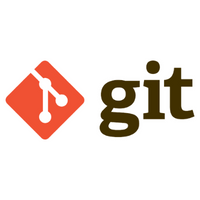
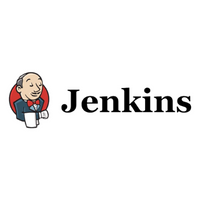
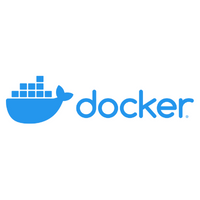
.png)
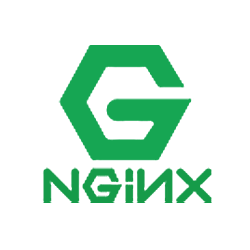


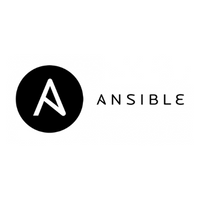
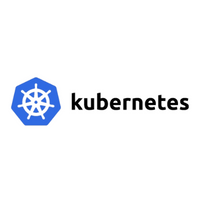



.png)

Watch our free demo class and experience our teaching in Telugu from our Industry experts.
The education offered by Python Life is industrial education. We are known for our course programs. And whatever we teach, it starts from scratch to advanced level. An experienced instructor is available to him 24/7 to clear any doubts.
Yes, all concepts are taught from basic to advanced level and the instructor will check if students understand before moving on to more subjects.
Of course, Python Life trains students according to industry requirements and specifications. We also conduct in-house planning and mock interviews.
There are no eligibility criteria for this course, which is taught from start to finish, so anyone interested in the course can participate.
Yes, you will receive a course completion certificate from Python Life when you submit your project at the end of the course.
Sorry, No refunds.
You can join by paying from our site. Immediately after payment, you will receive a confirmation from us to guide you through the further process.
Yes, all sessions will be recorded and will be provided for the students.

